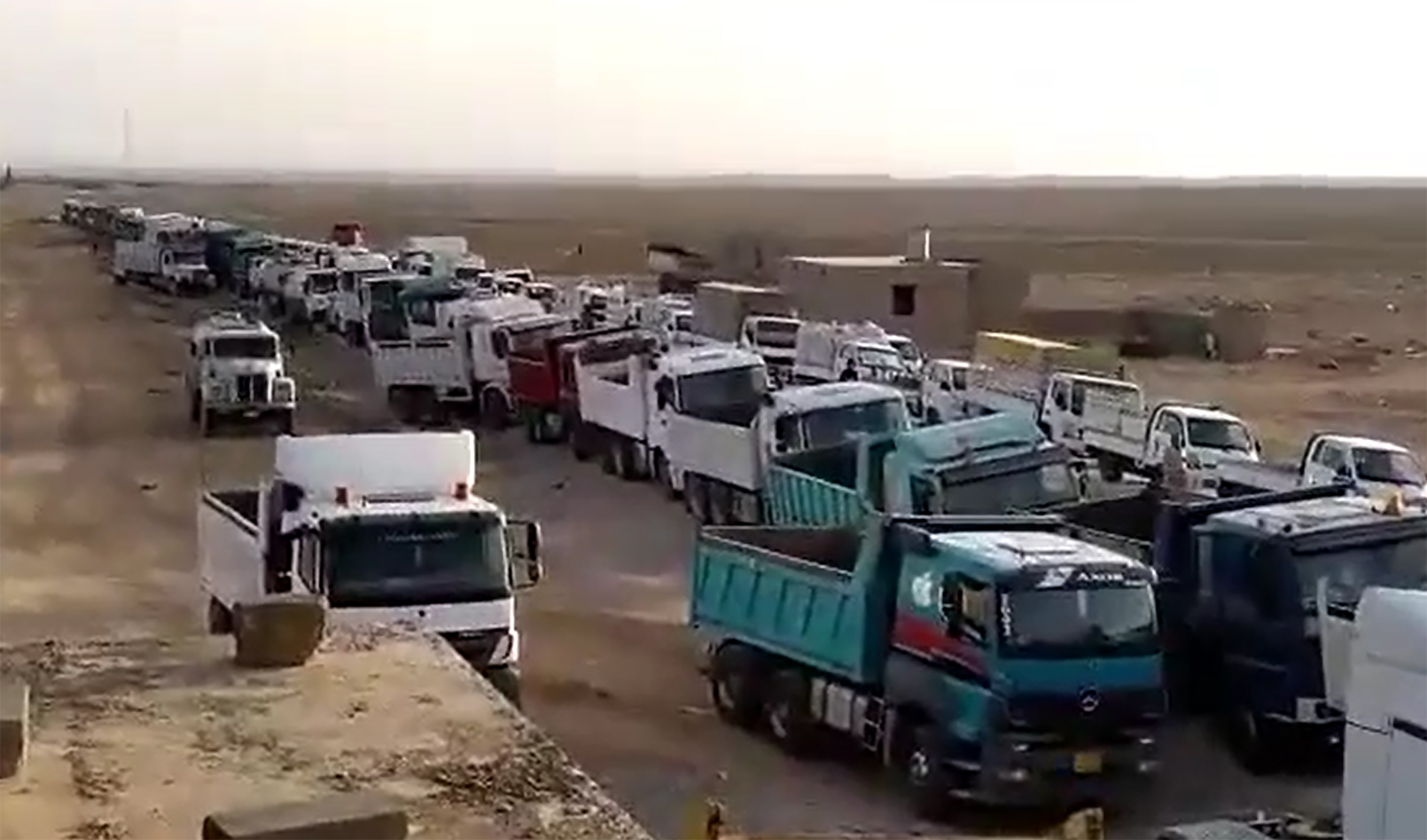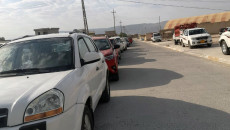Drivers of cargo vehicles in Shingal district of Ninewa province are forced to wait three days to obtain diesel due to the small portion the towns receive from Mosul, center of the province, and the closure of all private petrol stations in the district.
On June 28, the Iraqi federal government issued a decision to close private gas stations in Shingal for having no licenses, while these stations were a major source for providing diesel for cargo trucks.
“Our biggest problem is the shortage of diesel since the share of the district of diesel product is insufficient, so we have to wait in front of government gas stations for two or three days, and sometimes more,” said Amer Khodida, a truck driver.
According to (KirkukNow) follow-ups, Shingal's share of diesel reaches the private gas stations in the district once every two days, part of it is distributed to private diesel generators and the rest is allocated to cargo vehicles. (KirkukNow) was unable to obtain information regarding Shingal's share of gas oil and the number trucks in that district.
Khodida said, "Previously, we used to supply fuel from private petrol stations, but these stations are no longer operating, so we depend entirely on government diesel."
There are 20 private petrol stations in Shingal district, all of which were closed per orders from Baghdad without finding a solution to the problem and setting a date for its reopening.
End of June, the federal government have order the closure of 150 private petrol stations in Kirkuk and Ninewa for various reasons, including lack of licenses and smuggling.
There are only two government petrol stations in Shingal, one in the district center and the other in the Sinuni subdistrict.
We have suffered great losses
Falah Khidr, owner of one of the private stations shut in Shingal, said, “We have suffered great losses and no one is willing to address our problem.”
Khidir who established the gas station since 2010, added, “Throughout the past few years, no one asked us about license, no one knows why they are asking for it now."
Those petrol stations are accused of smuggling gasoline to the Kurdistan Region of Iraq KRI where most of petrol stations are private.
The price of a liter of ordinary gasoline in the KRI is 1200 IQD, pushing motorists to head to disputed territories to get cheaper gasoline.
Haji Koli Hussain, owner of a gas station in Shingal, tried to obtain a work permit, but he believes that the conditions for issuing it are difficult.
“No one can implement these conditions, which require 10,000 dollars, because the station needs a plot of land and other supplies.”
Fahad Hamid, the acting mayor of Shingal district, said, "The gasoline crisis was addressed by increasing Shingal's quota of gasoline, and drivers of small vehicles are now able to refuel within 30 or 40 minutes, but the biggest problem is the shortage of diesel because Shingal's share is small and has created problems for owners of load vehicles and private generators.”
Earlier, a number of private generators owners in Shingal have gone on strike, demanding that their share of state-subsidized diesel to be increased.
Hamid attributes one of the causes of the gas oil crisis to the closure of private gas stations, stressing the need to grant them work licenses according to government procedures to reopen again.
Across Ninewa Governorate, there are 28 public stations, 11 of which are in Mosul. These stations distribute more than 1.4 million liters of gasoline daily to motorists.
Shingal district is home to the ethno-religious minority of Ezidis (Yazidis) and one of the disputed territories between Baghdad and Erbil, .
The disputed territories extend from Khanaqin in the east on the border with Iran to the oil rich city of Kirkuk heading to the west of Mosul in Shingal, home to Ezidi community, on the border with Syria.
Following the declaration of military defeat of so-called Islamic State in Iraq and Syria ISIS by the Iraqi government back in 2017, discord over security arrangements, public services, and the lack of a unified administration in the disputed territories, have plagued victims and survivors and led to poor public services, crisis and shortages in many sectors of life.






